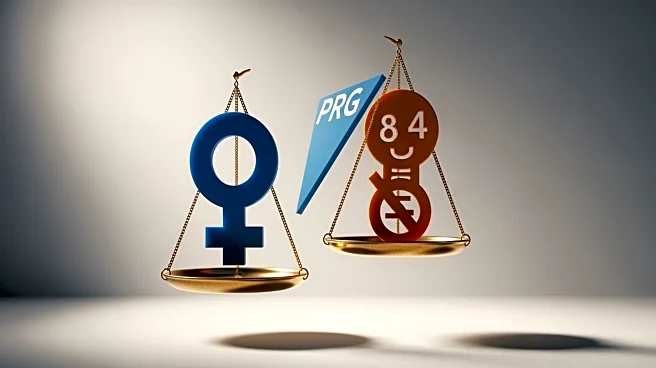What's Happening?
Kyrsten Sinema, the U.S. Senator from Arizona, has undergone a significant political transformation from her early days as a progressive activist to her current role as a staunch defender of the filibuster.
Sinema's journey began with her involvement in Ralph Nader's presidential campaign and her candidacy as a Green Party member. Over time, she shifted towards a more moderate stance, focusing on bipartisan cooperation and rules-based governance. Her defense of the filibuster has positioned her as a key figure in legislative debates, particularly on issues such as infrastructure spending and voting rights.
Why It's Important?
Sinema's political evolution reflects broader trends in U.S. politics, where moderate voices are increasingly influential in shaping legislative outcomes. Her defense of the filibuster highlights the ongoing debate over procedural rules and their impact on policy-making. Sinema's approach emphasizes the importance of bipartisan cooperation, which can lead to more durable and stable legislative achievements. Her stance has drawn criticism from progressives, but it underscores the complexities of navigating a polarized political environment while striving for effective governance.
What's Next?
As Sinema continues to play a pivotal role in legislative debates, her stance on the filibuster and bipartisan cooperation will be closely scrutinized. Her ability to influence key policy areas, such as voting rights and infrastructure, will depend on her capacity to build consensus across party lines. Sinema's approach may inspire other lawmakers to adopt similar strategies, emphasizing moderation and collaboration. The ongoing debate over procedural rules and their impact on policy-making will remain a central issue in U.S. politics, with potential implications for future legislative efforts.











